| | 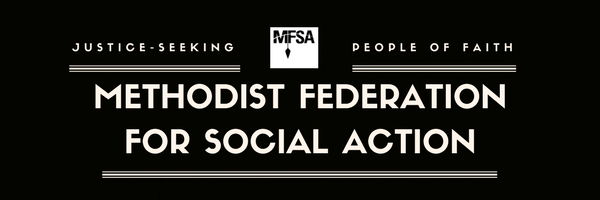 | | | Dear Justice-Seeker, This issue of MFSAVoices is jam-packed with resources and information. So much so that it won't all fit in your email message so be sure to click view entire message at the bottom of this email to view the entire issue. Our newsletters are designed to be used all month long. So take a quick glance and take note of important dates to add to your calendar but also come back in the following weeks to work your way through the action items. Gmail users—move us to your primary inbox - On your phone? Click the 3 dots at the top right corner, click "Move to" then "Primary"
- On your desktop? Back out of this email then drag and drop this email into the "Primary" tab near the top left of your screen
We continue to see the urgency of our work to make broad systemic change. Change that honors the dignity and worth of all people, puts people over money, and honors the earth and all her inhabitants. Since 1907, MFSA has been shining a light on injustice and organizing to change it. You make our collective work possible by your witness for justice every day in your church, community, and Annual Conference. MFSA does not receive any financial support from the United Methodist Church's giving channels. 100% of our budget is funded through your membership dues and your generosity in giving. | | | | | | 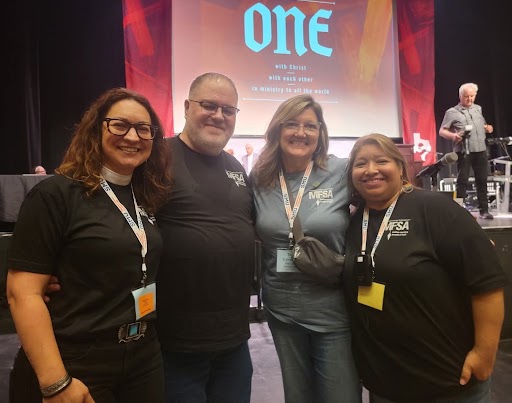 | Since 1907 the Methodist Federation for Social Action (MFSA) has been mobilizing clergy and laity to speak out and take action on the pressing issues of our time. Your support makes this work possible. Becoming a member of MFSA means making a financial contribution to MFSA and joining other activists who care about issues of justice and peace and actively work to make a difference. As a fully donation and member-supported organization, MFSA depends on people like you to sustain our prophetic witness for justice in The United Methodist Church and beyond. When you become a member, you’re not only supporting national and international efforts — 20% of your contribution goes directly to your local MFSA Chapter/Regional Community. If there’s no chapter near you, that portion helps seed and grow new MFSA communities. In a time when the call for justice in our Church and our world is more urgent than ever, MFSA continues to organize, advocate, and witness boldly. Supporting LGBTQIA+ inclusion in The United Methodist Church; raising awareness and building solidarity with Palestine; resisting anti-trans and anti-abortion legislation and advocating for racial, disability, economic, and climate justice, we remain committed to prophetic action grounded in faith. We invite you to join or renew your membership today. Your support sustains our work, fuels our organizing, and strengthens our collective voice. | | | | | | 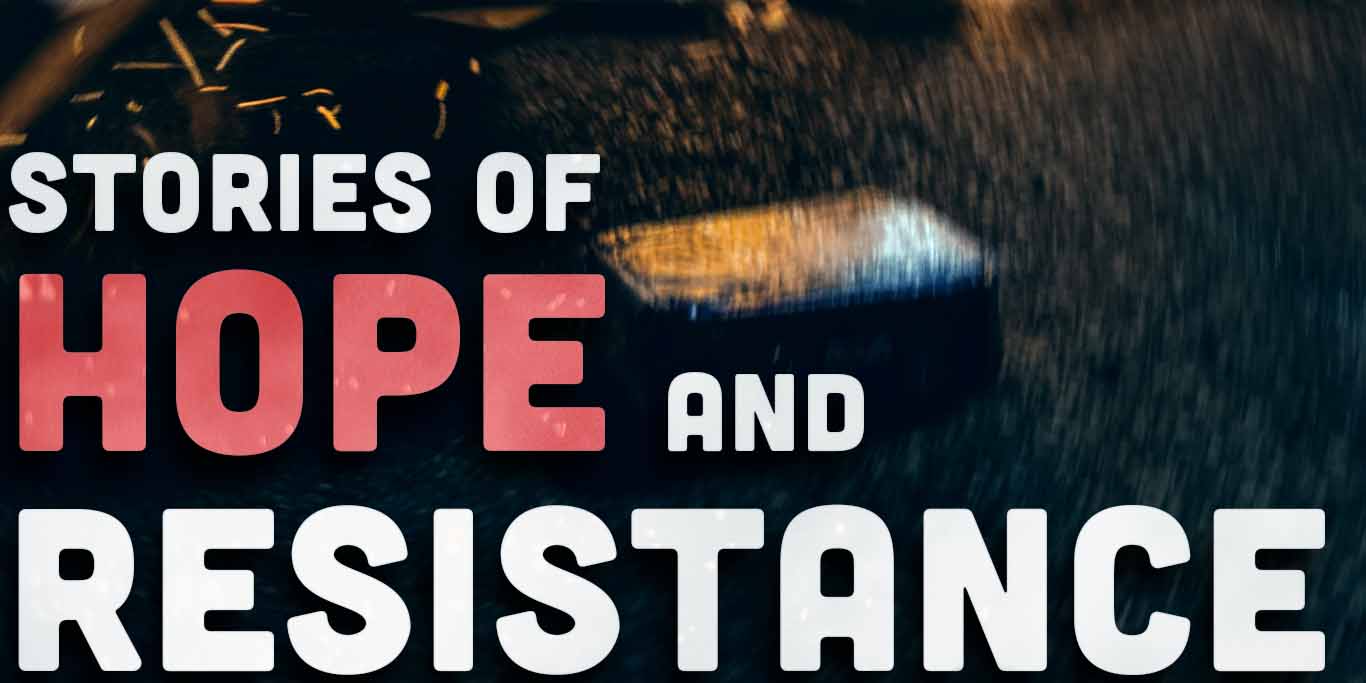 | Stories of Hope and Resistance The church has long been a place where justice is not only preached but lived out in times of political and social upheaval. However, with the arrival of a new administration intent on rolling back hard-won rights and freedoms, faith communities across the country are refusing to remain silent. This new section of our newsletter is dedicated to sharing the ways churches are standing firm in their commitment to justice. We're excited to highlight actions and movements within faith communities that resist oppression, embody radical hospitality, and insist on a future where love, dignity, and equity prevail. Whether through direct advocacy, sanctuary efforts, mutual aid, or prophetic witness, these faith communities remind us that another world is possible—and we are called to help create it. If your church is engaged in work that challenges injustice and fosters hope—especially through acts of subversion and resistance against oppressive policies—we want to hear from you. Here are some stories of hope and resistance: | | | | | | | | 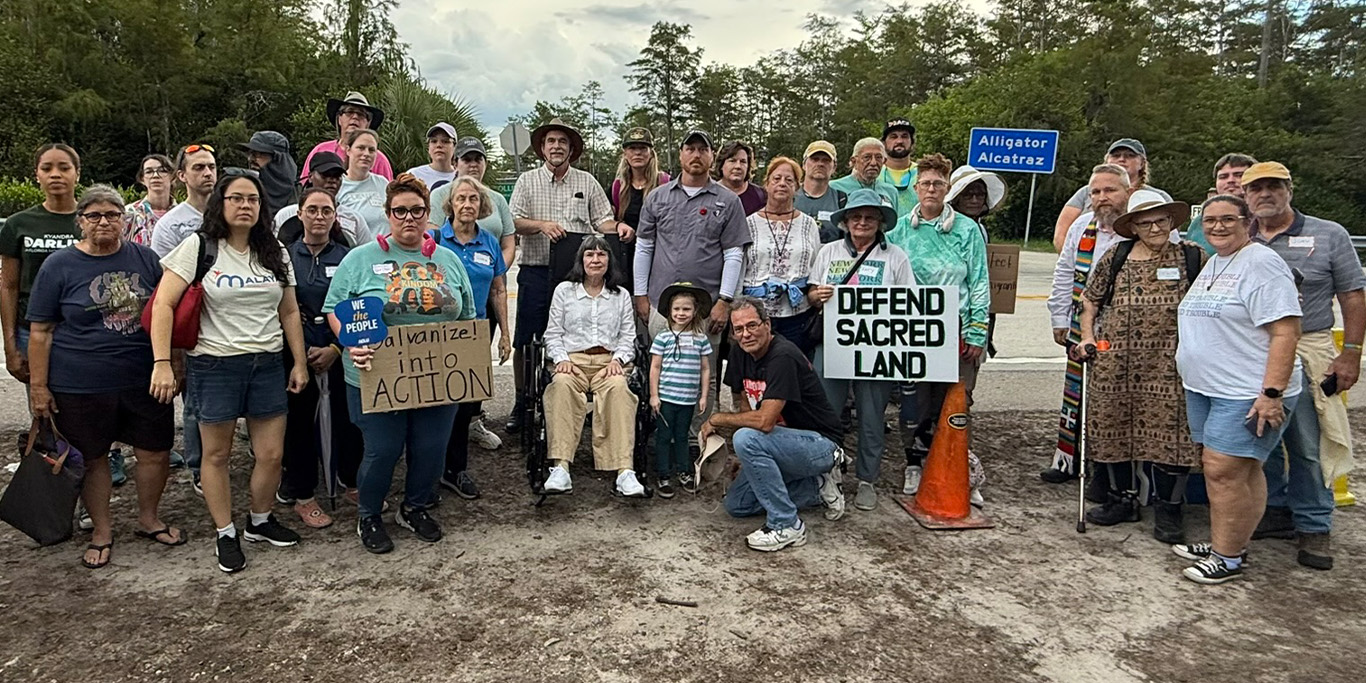 | Organizing Vigils at Detention Centers:
A Call to Witness and Action By Cameron Helwege, MFSA Communications Coordinator The Vigils in Protest of the detention center known as “Alligator Alcatraz” On Sundays in August, hundreds of people of faith have been gathering at the gates of Florida’s new detention facility, known by many as “Alligator Alcatraz.” Located deep in the Everglades, the site was built hastily on an abandoned airstrip and now cages hundreds of immigrants in inhumane conditions. Reports of broken toilets, moldy food, and sweltering tents make it clear: this is a moral crisis. 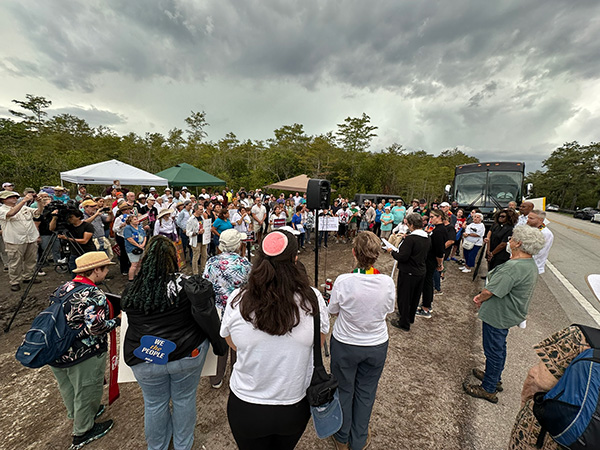 Faith leaders in close partnership with Florida Immigrant Coalition and the Miccosukee Tribe joined together for five consecutive Sundays, standing in a small clearing on the side of US 41 outside the entrance of the facility for prayer, testimony, and lament. Their message was simple: no one belongs in cages. Over 280 people attended the August 17 vigil, arriving by bus and carpool from churches and community groups across the state. Diverse voices—Jewish, Muslim, Christian, Indigenous, and people of moral conscience—lifted prayers and poems, refusing to look away from the injustice happening just across the street. Faith leaders in close partnership with Florida Immigrant Coalition and the Miccosukee Tribe joined together for five consecutive Sundays, standing in a small clearing on the side of US 41 outside the entrance of the facility for prayer, testimony, and lament. Their message was simple: no one belongs in cages. Over 280 people attended the August 17 vigil, arriving by bus and carpool from churches and community groups across the state. Diverse voices—Jewish, Muslim, Christian, Indigenous, and people of moral conscience—lifted prayers and poems, refusing to look away from the injustice happening just across the street. But this story is bigger than Florida. Detention centers like this one exist across the country, and in every case, they are places where immigrants—many fleeing violence, poverty, or disaster—are stripped of dignity, locked away without due process, and too often denied access to legal aid. Behind the fences and razor wire, families are torn apart and human beings are warehoused as a matter of policy emboldened by authoritarian leaders who see immigrant lives as disposable. 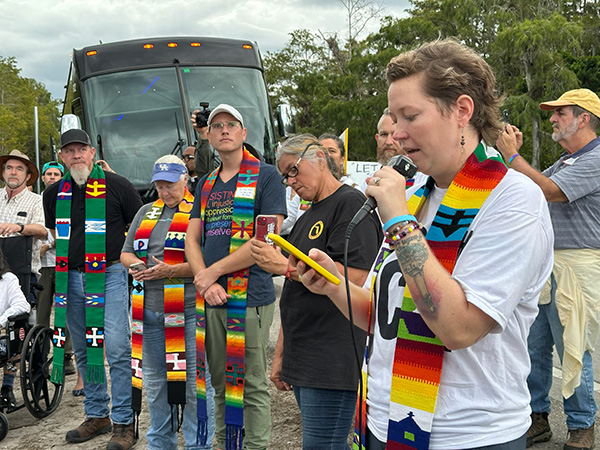 By gathering publicly, we shine a light on what those in power want hidden. We remind one another that love crosses borders, that solidarity is stronger than fear, and that cages will not have the last word. By gathering publicly, we shine a light on what those in power want hidden. We remind one another that love crosses borders, that solidarity is stronger than fear, and that cages will not have the last word.
What is happening in Florida can serve as a model for a broader justice-seeking movement. Vigils at detention centers are a way for people of faith and conscience to bear public witness, to disrupt the narrative of fear, and to stand alongside immigrant communities who demand freedom. How to Organize Something Similar If there is a detention center in your region, consider gathering your community in witness and protest. The Florida vigils offer a template: - Florida's organizers have been holding vigil from 5-6 PM and have been encouraging others to use the same time slot for solidarity.
- Make travel accessible. Organize buses and carpools to lower the barrier for participation.
- Prioritize safety. Enlist volunteer medics and train safety marshals.
- Connect with local leadership. Partner with people who know the land and community. In Florida, faith leaders worked alongside members of the Miccosukee Tribe.
- Stay peaceful. Do not engage with hecklers or opposition; the focus is on witness, not confrontation.
- Create solidarity opportunities. If you are too far from a detention center, host a vigil outside a local courthouse, city hall, or church to align in spirit with those at the gates.
A Framework for these Vigils Each vigil is different, but a basic flow can include: - Opening Gathering: Words of welcome and a moment of silence for those harmed in detention.
- Invocation: Short prayers or readings from diverse traditions (Jewish, Christian, Muslim, Indigenous, secular, etc.).
- Song or Chant: Simple, repeatable songs like We Are a Gentle Angry People or We Shall Overcome.
- Testimonies: Stories from those directly impacted, alongside reflections from faith leaders.
- Litany of Lament and Hope: Call-and-response naming the cruelty of detention and the hope for liberation.
- Closing Blessing: Leaders from multiple traditions offer short blessings for strength, courage, and freedom.
Take the Next Step The invitation is clear: if there is a detention center in your area, you can organize too. Whether you bring ten people or two hundred, whether you stand at the gates of a facility or hold a solidarity vigil miles away, your presence matters. Together, our collective voices can declare that love will not be detained, and that every human being is worthy of safety, freedom, and belonging. You may have heard the recent news that “Alligator Alcatraz” has been ordered to shut down. The vigils will continue until every cage is empty, and when that happens, faith leaders in Florida will continue holding vigil at other detention camps around the state. Interested in Connecting on Vigils Contact Noelle Damico
Director of Social Justice
NDamico@circle.org | | | | | | | | Churches push back on armed troops in US cities By Heather Hahn
Aug. 27, 2025 | UM News As armed military troops and masked federal agents patrolled D.C. neighborhoods, religious leaders joined in a prayer vigil that offered a more hopeful vision for the U.S. capital. “There is enough — enough time, enough compassion, enough money — if only we would choose to use our resources for healing rather than control, for liberation rather than bondage,” preached the Rev. Donna Claycomb Sokol, pastor of Mount Vernon Place United Methodist Church. She spoke at the Aug. 22 “Multi-Faith Prayer Vigil for Healing and Justice,” whose sponsors included both Mount Vernon Place and Foundry United Methodist churches. Hundreds of people crammed into the Columbia Heights Civic Plaza to join the prayer gathering led by around 40 faith leaders from across D.C. | | | | | | | | 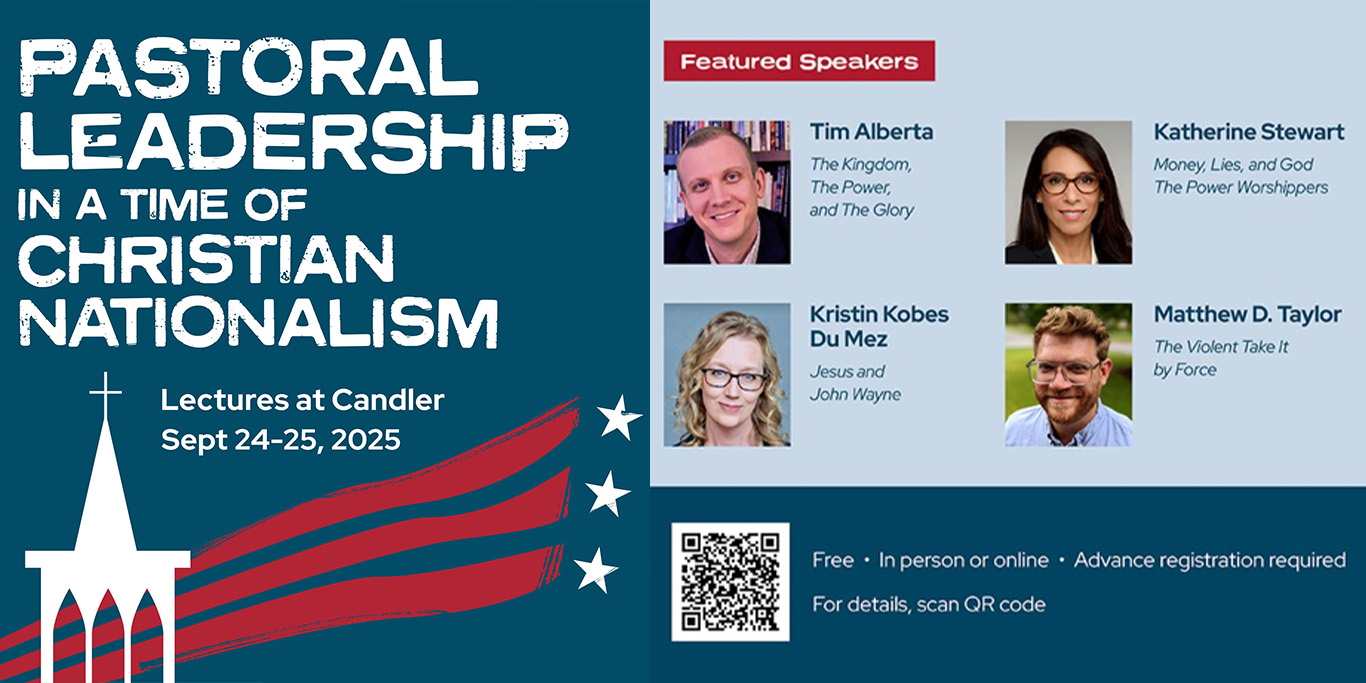 | Pastoral Leadership in a Time of Christian Nationalism September 24-25, 2025 In a time when Christian nationalism is gaining both cultural and political traction, the work of pastoral leadership requires renewed theological reflection, moral clarity, and prophetic courage. Candler is hosting this set of four public lectures to start conversations and offer resources to equip pastors and church leaders to respond faithfully to the challenges posed by this growing movement. Across two days, we’ll hear from four nationally recognized speakers whose work engages the intersections of religion, politics, and culture: Tim Alberta, journalist, author of The Kingdom, The Power, and The Glory, and son of an evangelical pastor Kristin Kobes Du Mez, historian and author of Jesus and John Wayne Katherine Stewart, investigative journalist and author of Money, Lies, and God Matthew D. Taylor, scholar of religion and extremism and author of The Violent Take It by Force All lectures are free and open to the public in both in-person and virtual formats, with advance registration required. | | | | | | | | 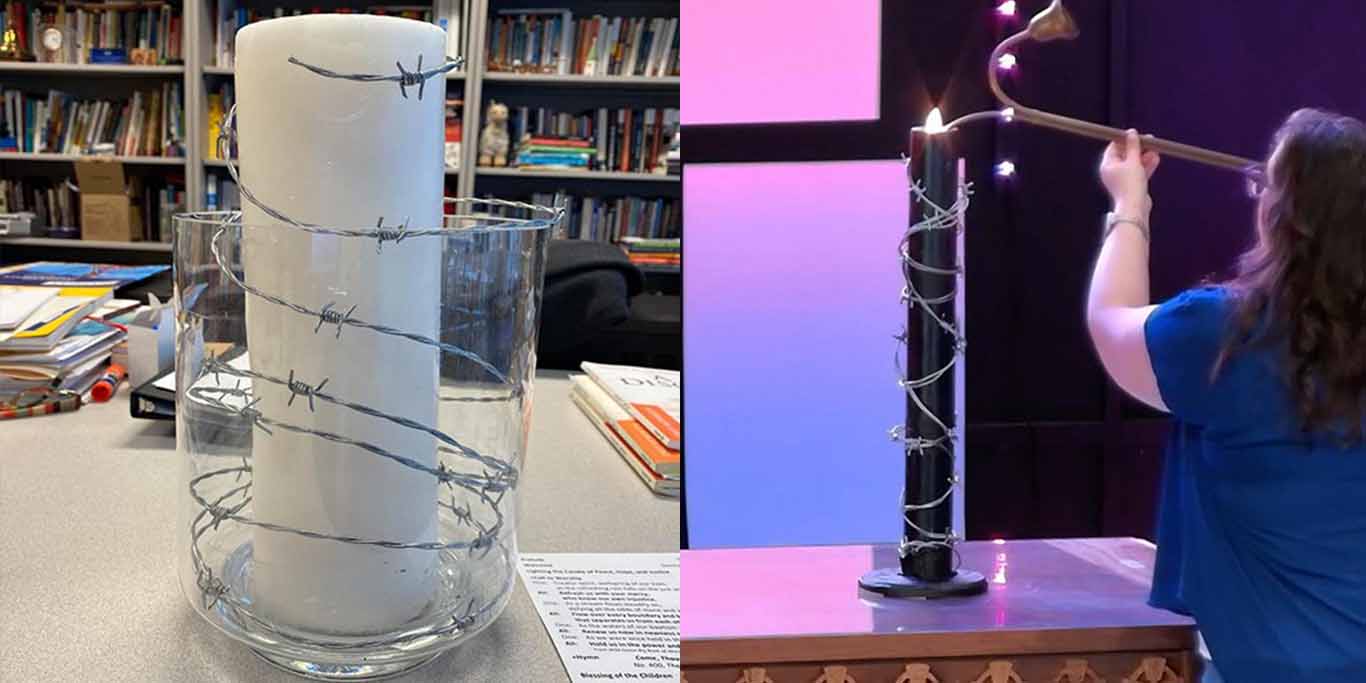 | Lighting the Candle of Peace, Hope, and Justice As we navigate the realities of this new administration, justice-seeking congregations across the country are standing in solidarity with those targeted by oppressive policies. We've seen churches respond by incorporating the Candle of Peace, Hope, and Justice into their worship services, lifting up prayers and commitments to resist injustice. Inspired by the Central Methodist Mission in Johannesburg, which lit a candle encircled in barbed wire during the struggle against apartheid, Rev. Dr. Donna Claycomb Sokol of Mount Vernon Place UMC in Washington, D.C., is one of the pastors who has reintroduced this practice. Rev. Andy Oliver of Allendale UMC in St. Petersburg, Florida, is another. Now, more than 50 congregations—including several MFSA-aligned churches—have joined this movement, lighting a candle each week and naming those suffering under policies of cruelty and exclusion. Recently, churches have lit the candle:
🕯️ For migrants—asylum seekers facing deportation, undocumented families living in fear, and faith leaders offering sanctuary.
🕯️ For federal workers—those losing their jobs, living in uncertainty, or suffering retaliation for speaking out.
🕯️ For USAID—millions impacted by halted humanitarian aid, from hungry children to struggling farmers.
🕯️ For the National Institutes of Health—patients, researchers, and those dependent on lifesaving medical advancements.
🕯️ For the conflict in Ukraine—those enduring war, Russian dissidents, and leaders seeking true peace.
🕯️ For the judicial branch—judges facing threats, courts upholding the rule of law, and those caught in legal battles over justice.
🕯️ For institutions of higher education and students—scholars facing retaliation, lost funding, and threats to free expression. Each time the candle is lit, congregations proclaim that the light shines in the darkness, and the darkness has never overcome the light. You can access the liturgy below. This document will be updated weekly, with liturgy uplifting a new group targeted by this administration. In this moment, as faith communities, we must recommit to resisting evil, injustice, and oppression in all its forms. Together, we will continue to bear witness, proclaim justice, and keep the light shining. | | | | | | | | 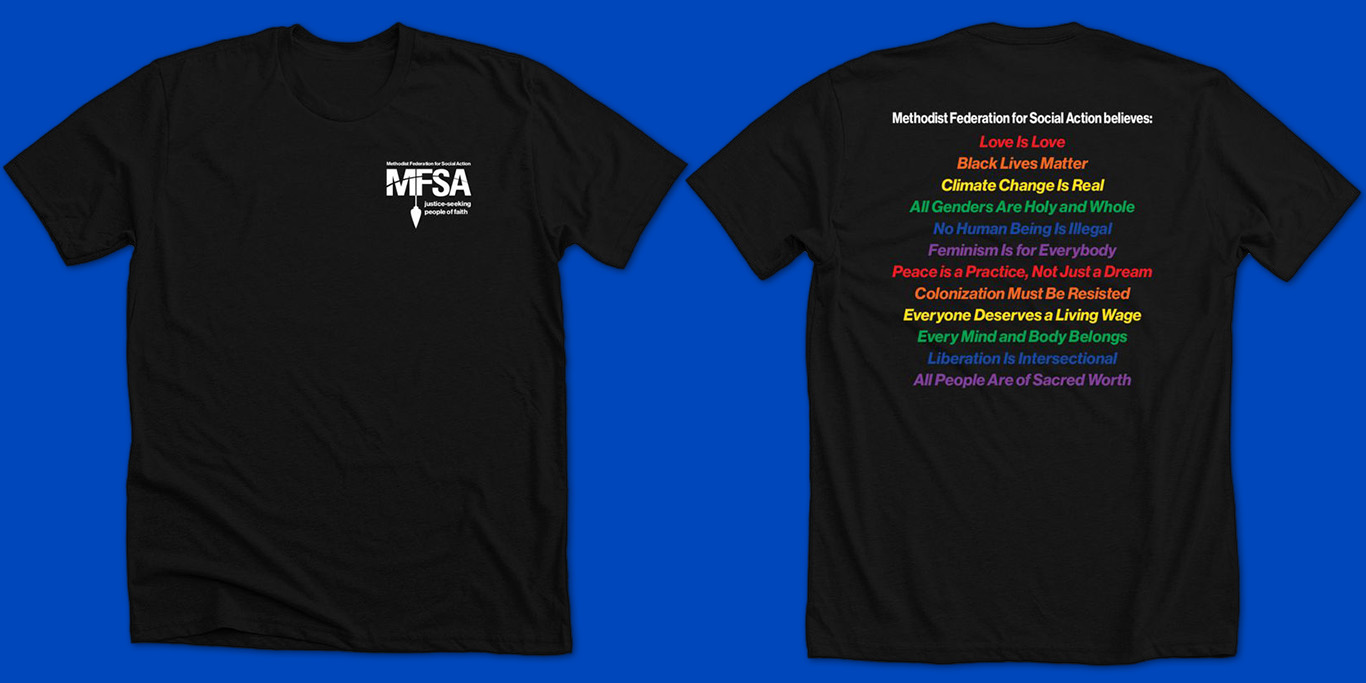 | "We Believe" MFSA T-Shirt and Yard Sign We recently launched a new t-shirt design. Boldly affirm your faith-rooted commitment to justice. Featuring core convictions from our movement, this shirt lifts up the truths we live by as Justice-Seekers. | | | | | | We also just launched a new yard flag, based on our popular t-shirt design! Place this fabric sign in front of your church or home to share these Justice-Seeking truths. | | | | | | | | 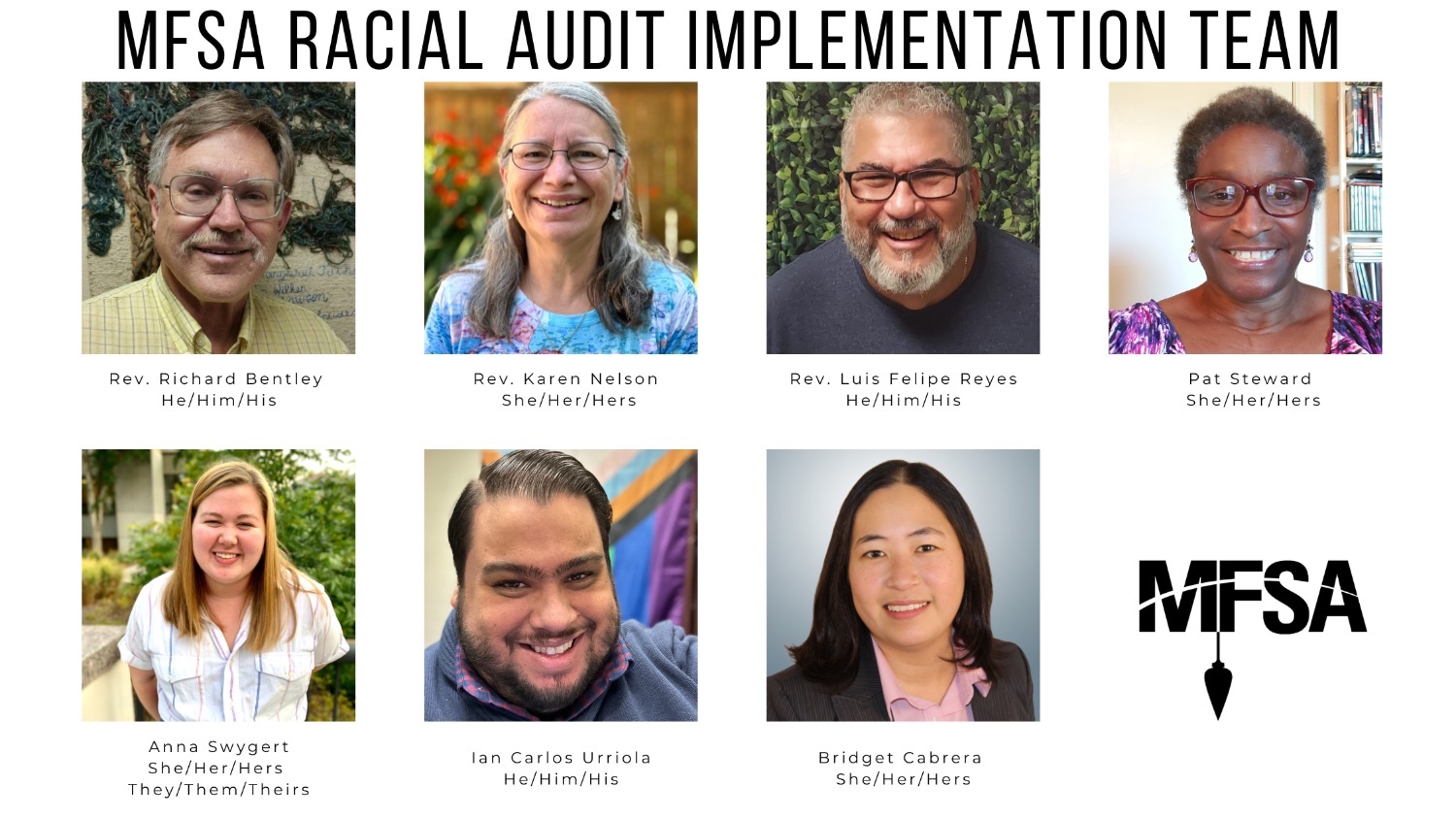 | Racial Audit Implementation Team Update "We Have Not Finished Yet..." by Patricia Stewart Note: In June 2023, the Methodist Federation for Social Action (MFSA) Board of Directors established the Racial Audit Implementation Team to carry forward the recommendations from the comprehensive Racial Audit. This work represents our deep commitment to becoming an anti-racist organization. Patricia Stewart is a member of that team, and this reflection is part of our collective journey to name, confront, and transform the white dominant culture within MFSA. It emerges from ongoing conversations centered on six key themes/patterns of white supremacy identified within our organization. These are the entrenched patterns we are actively working to disrupt as we move toward the liberation and equity we seek. We are sharing these reflections and insights publicly with our movement because accountability, transparency, and shared learning are essential to dismantling white supremacy. We know that transformation does not happen in isolation. By sharing our process, struggles, and growth, we hope to invite our broader community into this work with us—offering tools, solidarity, and space for mutual reflection as we continue building a more just and faithful movement. In the Methodist tradition, justifying grace is one of the ways God’s grace moves in our lives. It refers to the moment when a person accepts God’s offer of forgiveness, and through Christ, is reconciled with God. This is not the end of the spiritual journey, but rather a turning point, a reorientation toward new life, community, and justice. Justifying grace reminds us that while grace is freely given, it calls us into ongoing transformation. As a member of the original Racial Audit Task Force, I learned a lot about the history of MFSA. I studied documents, read interviews with those involved in the past, and helped conduct a survey of current participants. Throughout all of this, I learned MFSA was — and is — not perfect. As an organization, it has at times been a strong vehicle for justice, but at other times... | | | | | | | | | | 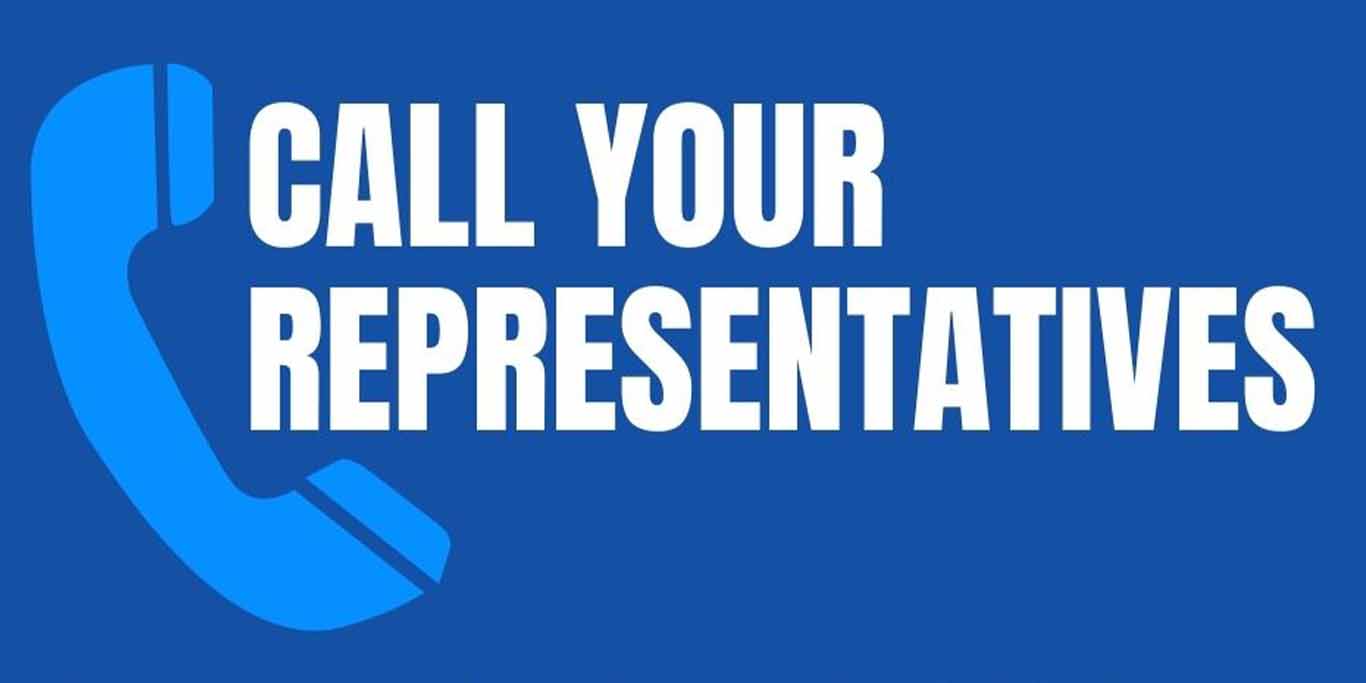 | Call Your Representatives and Demand Accountability We are reminded that respect for the office does not mean silence in the face of harm. Our democracy is under threat, and our most vulnerable communities are at risk. Now is the time to speak up—call your representatives and demand accountability. | | | | | | | |  | MFSA is now on Bluesky We've noticed many of our friends and partners making the move to this platform, and we're thrilled to join the conversation there. Stay connected with us for updates, advocacy, and conversations that matter. Connect with us @mfsavoices.org | | | | | | | | 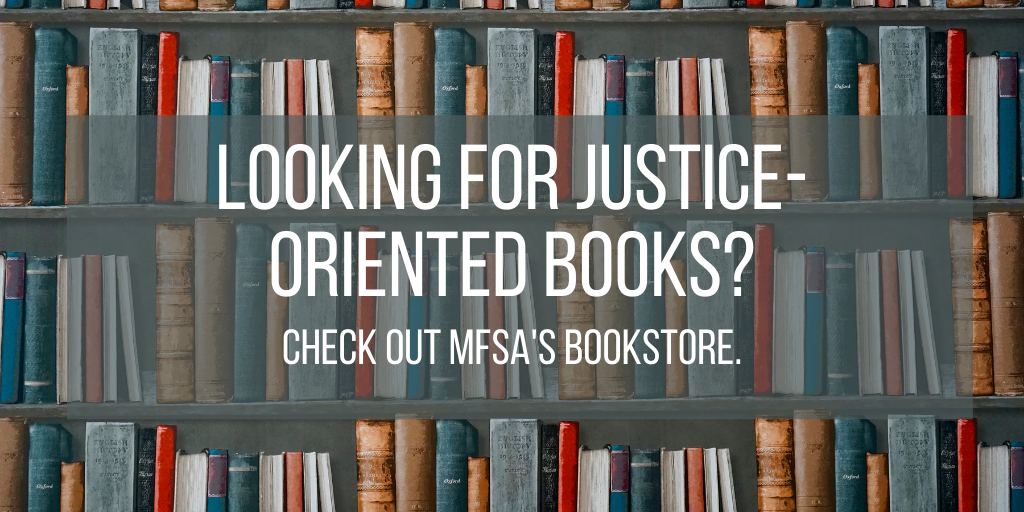 | | | | | | | | | | | | | 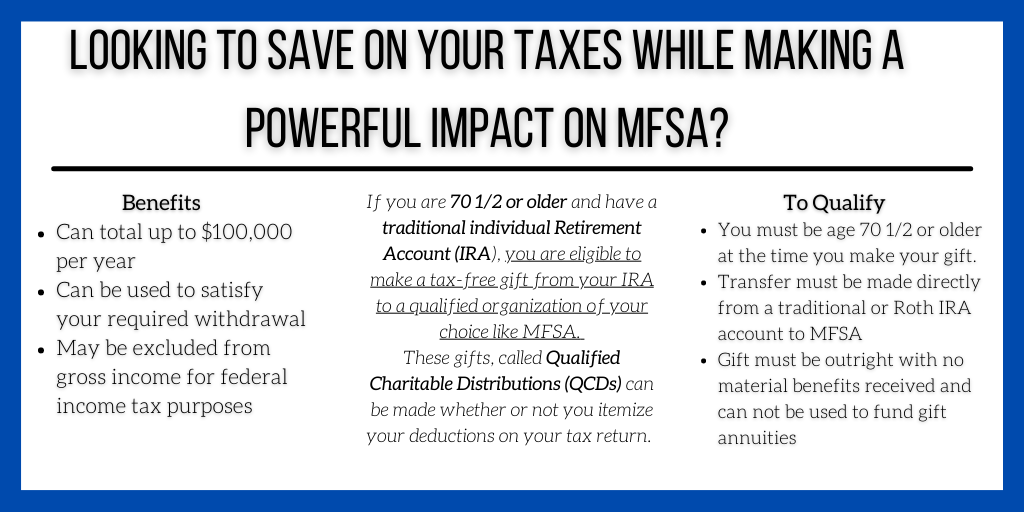 | | | | | | | | | Contact Us Methodist Federation for Social Action
996 Maine Ave SW #307
Washington, District of Columbia 20024
(202) 240-2546
bridget@mfsaweb.org | | | | | | | |